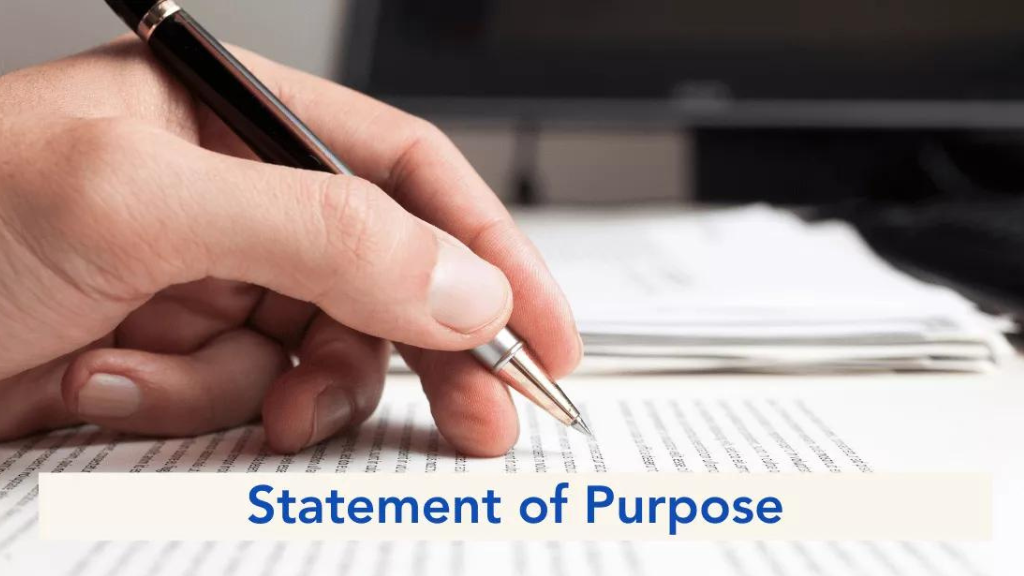| বাংলায় পড়ুন | Researchers and Reporters: Tanzil Fuad Isfaqul Kabir |
Many members of the younger generation are inclined to pursue higher education overseas in an attempt to alter their life course. In search of improved living conditions, cutting-edge research, and creative opportunities, a large number of people are moving to Europe, America, and other nations. A crucial first step in this situation is the Statement of Purpose or SOP. A well-structured SOP might make your application for admission to the university of your choice a reality. Together, we will explore the specifics of writing SOPs.
To begin with, what is the SOP?
One way to express your intended aims is through a Statement of Purpose or SOP. What makes you desire to study abroad for a degree? SOPs should be documented in the narrative of your thought strategy. The SOP ought to include information on your motivations for joining a specific university, your subject of study, your research interests, and your involvement in research. Research Statement is another name for SOP in various instances.
An academic institution is interested in learning about a student’s experiences in a certain field. The SOP for PhD and several master’s degree programs must include past research and future intentions. The SOP should include information on the student’s professional background and previous course completions. The SOP essentially explains your suitability for a specific university department.

Key elements of an effective SOP. | Photo: Collected.
When writing a SOP, bear the following in mind:
Urge everyone who is studying abroad to give this particular location more priority. Nevertheless, when writing the SOP, nothing can be overlooked. If you can enroll in that university and study there, or not, a lot will depend on it.
The SOPs of others are often imitated by many. it is improper to do. Because nobody else, save university authorities, is interested in knowing about your ambitions. Therefore, only you are capable of truly expressing your good intentions. What you wish to learn and what you hope to gain from this education should be made very apparent in a well-written and efficient SOP. You ought to put your research interests down in writing.
A variety of experiences and circumstances that you encounter can serve as examples of your interests. The SOP ought to clearly outline your prior work experience, according to Palash Ranjan Sanyal, Placement Coordinator at the University of Saskatchewan in Canada. That being said, whether you completed your thesis in a graduate program or a master’s program, or if you worked on multiple projects throughout that time. You must write about it.
Justify your choice of university and the reasons behind it for your intended research topic. Explain how this research relates to your previous work in a letter. Mention the organization where you have previously worked. As a result of this SOP, the institution will be aware of your level of interest in the relevant course or study.

Write an effective SOP for a winning Statement of Purpose. | Photo: Collected.
What to write and what not to write in the SOP:
- Those of you with limited English proficiency should focus on the writing style while composing the SOP.
- Try to compose coherent sentences. Write nothing on a topic you are not knowledgeable about.
- If required, you can view different SOP templates on the Internet, but don’t copy them.
- Complete the SOP authoring before the deadline. Write something again. Try writing SOP under the supervision of an expert.
These pointers will help you write SOPs:
When you sit down to create the SOP, record on a designated sheet of paper your hobbies, professional background, research, thesis paper, and volunteer activities. It will prevent you from overlooking things.
-Your preferred university requests another paper. Record the instructions they provided in a list.
-List your top three motivations for researching the subject and its area of expertise.
-Try to use SOP to mention your little experience in a positive light.
-Aim to divide the SOP into two pages.
Keep in mind that your communication skills are what SOPs are all about. Your linguistic proficiency is also assessed by this SOP. Therefore, the greater the beauty of your writing, the higher the likelihood of receiving a call from the institution.





























Comments